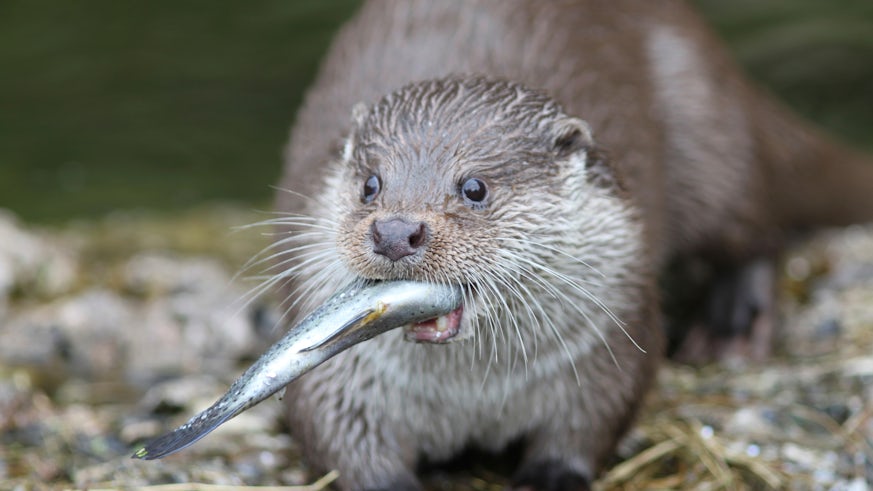Sequencing the otter genome to improve environmental monitoring
6 December 2017

To mark the 25th Anniversary of the Wellcome Trust’s Sanger Institute they will be decoding the DNA of 25 UK species for first time, and Cardiff University’s Otter Project aims to get the genome of the otter made available through a public vote.
As part of the 25 Genomes project, the Wellcome Trust are holding a public vote to decide five of the species that will have their genome mapped.
The School of Bioscience’s Otter Project is the ‘species champion’ in the competition, aiming to win one of the five spaces.
Dr Elizabeth Chadwick, head of the Cardiff University Otter Project, said: “We are taking part in lots of online chats with school groups and the wider public on a daily basis to get people voting for the otter in the 25 Genome Project.
“If we become one of the five winning species, the otter genome will be sequenced and made available, which would be an amazing contribution to our Cardiff University research.
“Having the otter genome sequence will be a goldmine for the researchers working with otters here at Cardiff, and also across the world.”
Cardiff University’s Otter Project runs a long term environmental surveillance scheme, investigating contaminants, disease, and population biology across the UK.
The national scheme collects otters that have been found dead, often through road traffic collisions, from across England, Scotland and Wales.
Through post mortem examination, the researchers can collect observations, measurements and biological specimens that can be of great benefit to ecological research.
The sequencing of the otter genome would aid both fundamental research and applied conservation.
Dr Frank Hailer, Population Geneticist and part of the Cardiff University Otter Project team, said: “We would be able to understand how otters are adapted to their environment, and this will be able to help us design new monitoring methods.
“Monitoring otters through DNA sampled from hair and faeces is really important, but very challenging.
“Sequencing the otter genome will really help to improve the success rates of the analysis and will contribute to our understanding of distribution and behaviour of otters.
“For this to happen we need as many votes as possible in the public vote.”
Voting for the 25 Genome Project closes on December 8.
If you would like to vote for the Otter Project and help to get the otter genome sequenced, click here: https://floundering25.imascientist.org.uk/vote/